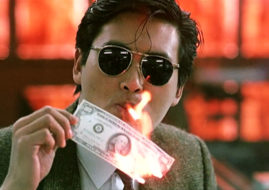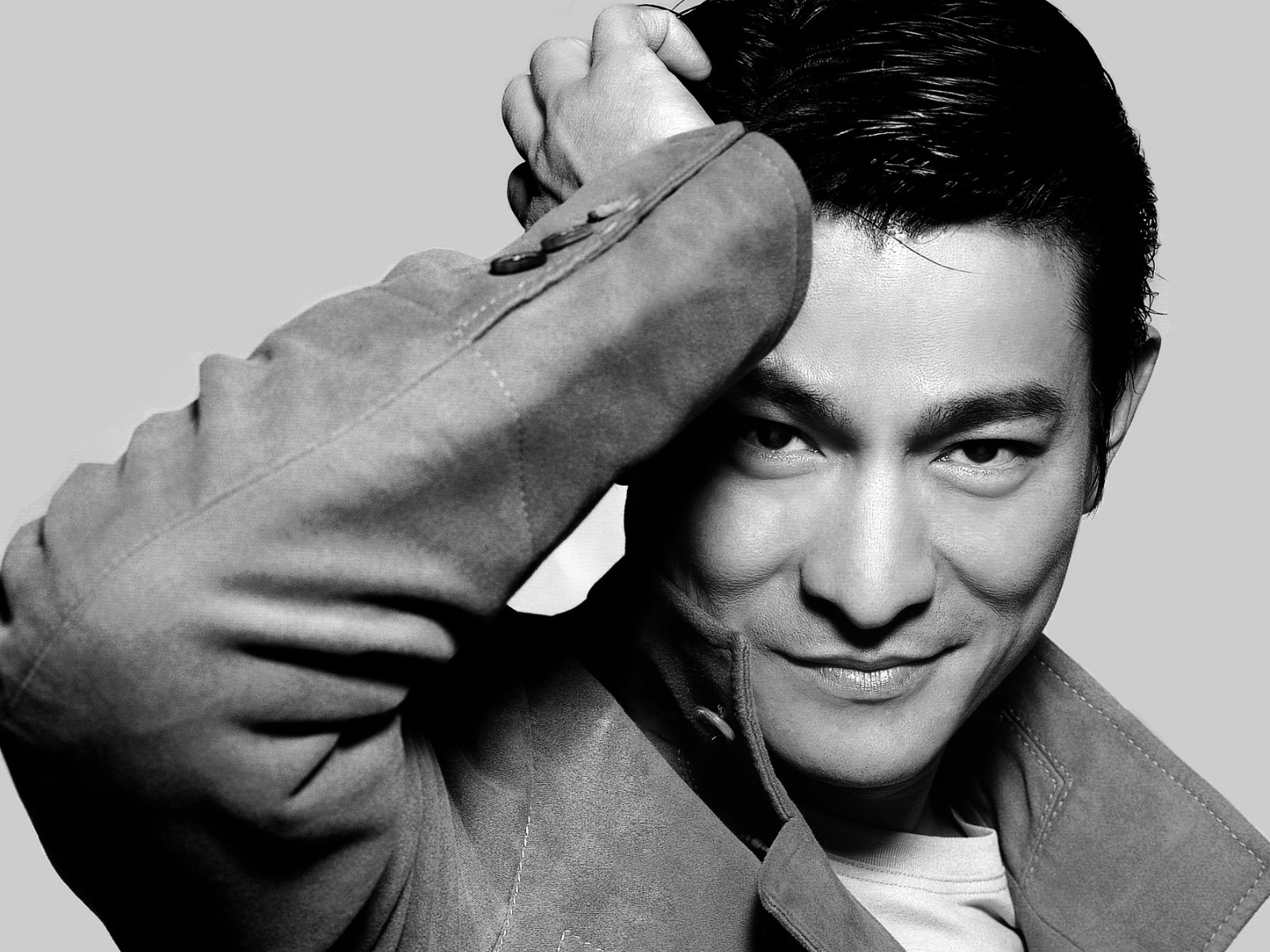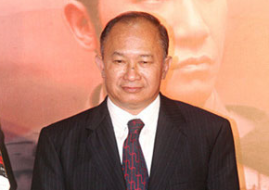‘Election’ Films Rise to the Top of the Hong Kong Gangster Class
‘Election’ Films Rise to the Top of the Hong Kong Gangster Class
[Washington Post
by Stephen Hunter
Washington Post Staff Writer
If the subject is movies and you say “Hong Kong gangster,” you cannot but evoke, fairly or not, the great body of work by John Woo, as well as his imitators of the early ’80s. These gents had a great deal of fun with the old conventions invented in Hollywood in the ’30s, and their tropes were so seductive they’ve become world cinema tropes — men flying through the air in slow motion with an automatic pistol in each hand, excess spillage of blood, explosions and car crashes everywhere, a conceit that action sequences are like musical numbers and a movie pays no attention to interior logic but, like musicals, merely engineers its way to the next blast-o-rama as easily, if illogically, as possible. You can see the old Hong Kong aesthetic at play in just about every big international summer movie on the market.
But the Chinese, when few in the West were looking, morphed. Their gangster pictures became less frenetic, more character-driven, more naturalistic, less extravagant, more ironic. This was most obvious in “Infernal Affairs,” the dense drama that was adapted for the American screen as “The Departed,” and the argument is closed with the arrival of the superb “Election” and “Election 2” this weekend in Washington.
The films, by the director Johnny To, a veteran of the Hong Kong gangster scene (among his 33 films are “Casino Raiders II” and “Executioners”), follow on the lead of “Infernal Affairs”: They are dense, demanding concentration, lacking any romantic (but plenty of sordid) violence, extremely involving and rewarding of careful attention.
In many reviews, I’ve seen them compared to the “Godfather” films of Francis Ford Coppola, presumably because they are about a competition for what is essentially the Godfather job in the clan. But this seems more or less inaccurate, because Coppola romanticized his movies — bathed in mythic, painterly light, they had a kind of sense of tapestry, a classicism (and a class) that gave them a still-unique feel.
To’s two movies are more like “The Sopranos,” but — no bitterness here, folks! — they actually have an ending! The comparison is based on their sense of character: Each of the many gangsters in the “Election” films has a specific personality, sometimes a little screwy, and egos are in play as much as serious tactical consideration. The issue is indeed an election, as the title indicates. It seems that in the Dark Society, as the most famous and venerable of Hong Kong’s Triads is called, the chairman of the board’s job is defined by tradition: It must be obtained by democratic election, and after holding it for the two-year term, the chairman is obligated to go into retirement and function thereafter as a kind of chairman emeritus, an elder statesman who advises but doesn’t directly influence affairs.
A subtitle for the two-film set might be “The Rise and Fall of Lok.” Lok (Simon Yam) is the heir apparent, and most of the brotherhood believes he is the man to be the next chairman. But there’s a wild card. Big D (Tony Leung Ka Fai, who goes all the way back to Woo’s “A Better Tomorrow” of 1986) wants the big job. Though Big D is acting against tradition, it is incumbent upon the sober and responsible Lok to deal with the situation with restraint, so a lot of the movie is about Lok’s rational responses to Big D’s increasingly irrational initiatives.
I should say that like “The Sopranos,” “Election” avoids big showy sets — we’re never in nightclubs or penthouses, we don’t pay much attention to skylines or yachts or fanciful versions of plush brothels. We’re in a workplace: the backrooms of restaurants and clubs, warehouses, automobiles. There’s also not a lot of shooting; the Beretta has been retired in favor of the club or knife, and even the knives aren’t fetish objects but flat kitchen utensils, jabbed and tossed. The movie follows the plotting and counterplotting as various killers, commandos, cops and wives come into play. It’s fascinating.
By the second picture, the situation has been reversed, forming almost a mirror image to the first. Now it’s Lok who defies tradition and a young businessman named Jimmy Lee (Louis Koo) who has to oppose him, though he is by nature not a gangster but only enjoys the society as a means of generating profit. The plotting and counterplotting grow extremely complex, and the violence, when it breaks out, is gruesome and total.
The movies are also gruesome and total: They take you into a world and make you believe it so hard you want a cigarette, a Hong beer and a really cool pair of shades.
Election and Election 2 (101 minutes and 93 minutes, respectively, in Cantonese with subtitles, at the AFI Silver) are not rated and contain extreme violence, including torture and death by blade and blunt instrument.
Source: www.washingtonpost.com





















